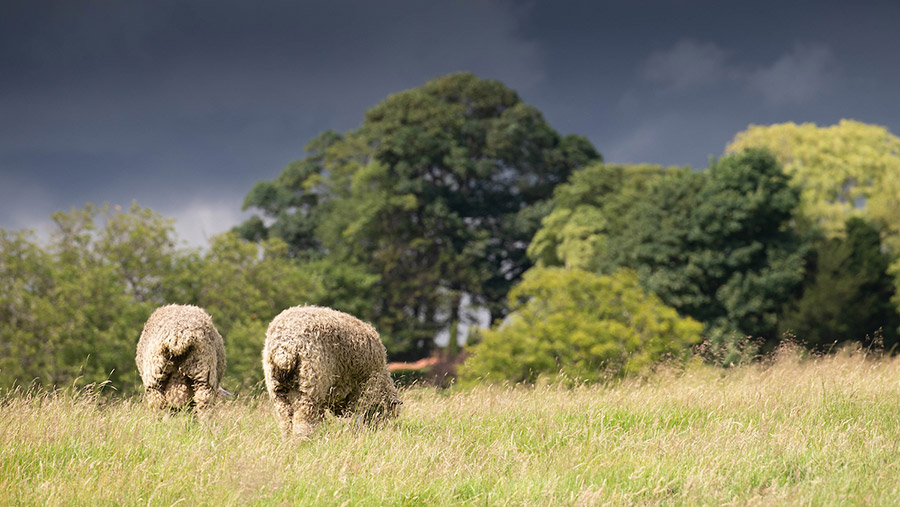Falling beef and lamb prices put farmers at risk of losses
 © Tim Scrivener
© Tim Scrivener Beef and sheep farmers are warning of falling finished prices squeezing margins and leading to losses, as many on-farm costs remain high.
GB deadweight steer and heifer prices have both dropped by almost 40p/kg since peaking in mid-May, while the GB deadweight lamb SQQ has fallen by 23% during the past three months and is down by almost 170p/kg.
See also: Mixed global forecast for beef sector as prices soften
Finished lamb prices tend to fall back during the summer months in line with seasonal trends as supply increases.
However, higher costs of production are eroding profits.
Some variable costs such as feed and fertiliser have started to return to more normal levels, but other farm inputs such as labour, veterinary costs and machinery remain high.
The outlook for UK lamb prices is mixed, with higher production and lower consumption forecast, but tighter supplies of lamb in the EU could offer some support to trade, according to the AHDB.
Isabelle Shohet, livestock analyst at AHDB, said demand from the EU could help soften potential price declines compared with 2022.
In Northern Ireland, the Ulster Farmers’ Union (UFU) said its members are losing confidence in the future of farming as prices continue to fall while costs of production remain elevated.
UFU president David Brown said: “The relentless pressure on prices that processors have exerted over the past number of weeks is unacceptable and must stop.”
Mr Brown said beef prices have fallen significantly, by more than £120 a head, and lamb has dropped by more than £30 a head.
“This means that the breakeven in terms of cost of production is widening and every day our farmers are losing.
“We can’t have processors undermining farmers’ confidence,” he added.
Supporting UK producers
Increased import volumes and adverse weather conditions are adding increased pressure for producers, according to the National Sheep Association (NSA).
NSA chief executive Phil Stocker said: “We potentially have a mountain to climb this winter.
“The agricultural industry is combating a period of extreme and unprecedented volatility within the marketplace, supply chains and input costs – so now is the time to champion British.”
